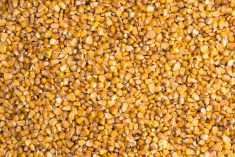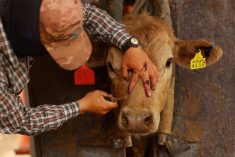Russia will ban imports of U.S. turkey due to concerns about the use of the feed additive ractopamine, Russia’s Veterinary and Phytosanitary Surveillance Service (Rosselkhoznadzor) said in a statement on Monday.
The service will impose a temporary ban on U.S. turkey starting from Feb. 11, it said.
It earlier decided to ban imports of U.S. beef and pork from the same date for the same reason.
Ractopamine is a growth stimulant used to make meat leaner and which is banned in some countries because of concerns that it could remain in the meat and cause health problems, despite scientific evidence showing that it is safe.
Read Also

U.S. grains: Wheat futures rise on supply snags in top-exporter Russia
U.S. wheat futures closed higher on Thursday on concerns over the limited availability of supplies for export in Russia, analysts said.
The product is sold in Canada as a feed premix for hog and turkey producers as Paylean 20, and as a premix for finishing beef cattle as Optaflexx 100.
Out of four countries Rosselkhoznadzor has cited for ractopamine in exports, also including Canada, Mexico and Brazil, "only the (U.S.) did not react constructively to the requirement of Russia," the agency said.
Major U.S. meat packers such as Tyson and JBS have assured that their companies can supply the Russian market with meat without ractopamine and "are ready to provide relevant warranties," Rosselkhoznadzor said in a release last week.
"However, according to international legislation such warranties cannot replace warranties" from U.S. federal veterinary officials, Rosselkhoznadzor said.
Russia imported 356,800 tonnes of poultry worth US$516 million from non-CIS countries between January and October 2012, customs data showed.
Rosselkhoznadzor said the use of ractopamine is "permitted in 24 countries of the world but prohibited in 160 countries."
— Reporting for Reuters by Polina Devitt in Moscow. Includes files from AGCanada.com staff.
Related story:
Russia to ban U.S beef, pork over feed additive, Feb. 1, 2013



















